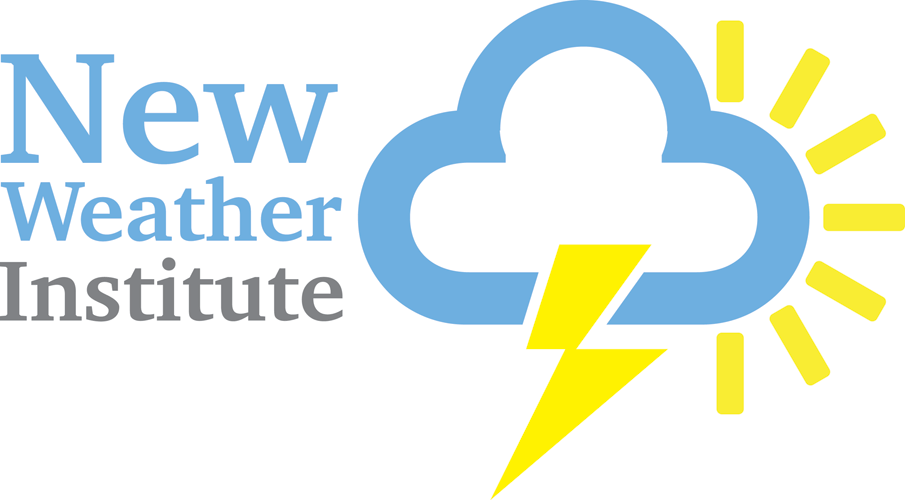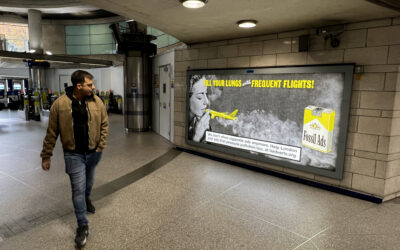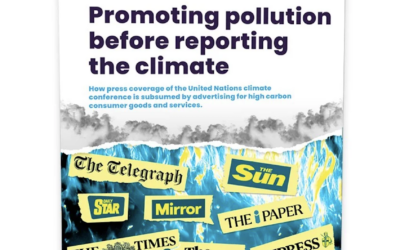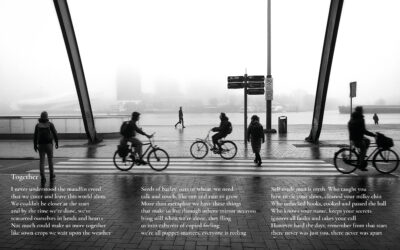New polling shows Winter Olympics fans want fossil fuel sponsors dropped as concern over snow loss surges One week ahead of the Milano Cortina 2026 Winter Olympics, new international polling reveals overwhelming public concern about the loss of snow and ice due to...
Explore our initiatives
Recently, in our blogs…
SUV ads ‘must go down the tube’
If someone saw a cigarette advert on London’s transport they would be shocked. But travellers are surrounded by adverts for high carbon, heavily polluting products, companies and lifestyles.
Climate reporting deluged by high carbon adverts
The top British papers will do more to promote polluting products and lifestyles during this year’s international climate talks, COP30 in Belém, Brazil, starting on 10 November, if they repeat what they did last year according to a new analysis of coverage of the previous talks, COP29 in 2024.
“Together” in Weather Forecast Photographic Exhibition
Seeing a gallery open call for an exhibition called 'Weather Forecast', it seemed rude not to submit something... and for the next month the image/text picture I submitted (called 'Together') will be part of the show in the utterly charming gallery Badger in the Wall...
Is Love the answer? Hope Tales fifth chapbook gets amorous.
The Rapid Transition Alliance's project Hope Tales has delivered another corker with its fifth chapbook on the subject this time of Love. A group of creative folk gathered as usual for an evening of sharing content, this time in London's Notting Hill. Thanks to all...
FIFA Men’s World Cup 2026 will be most polluting ever and promote oil giant Aramco – new research
The 2026 World Cup is set to take place across the United States of America, Canada and Mexico. Research published by the New Weather Institute reveals it is on track to become the most climate-damaging World Cup in the tournament’s 95-year history. FIFA'S Climate...
Latest Publication
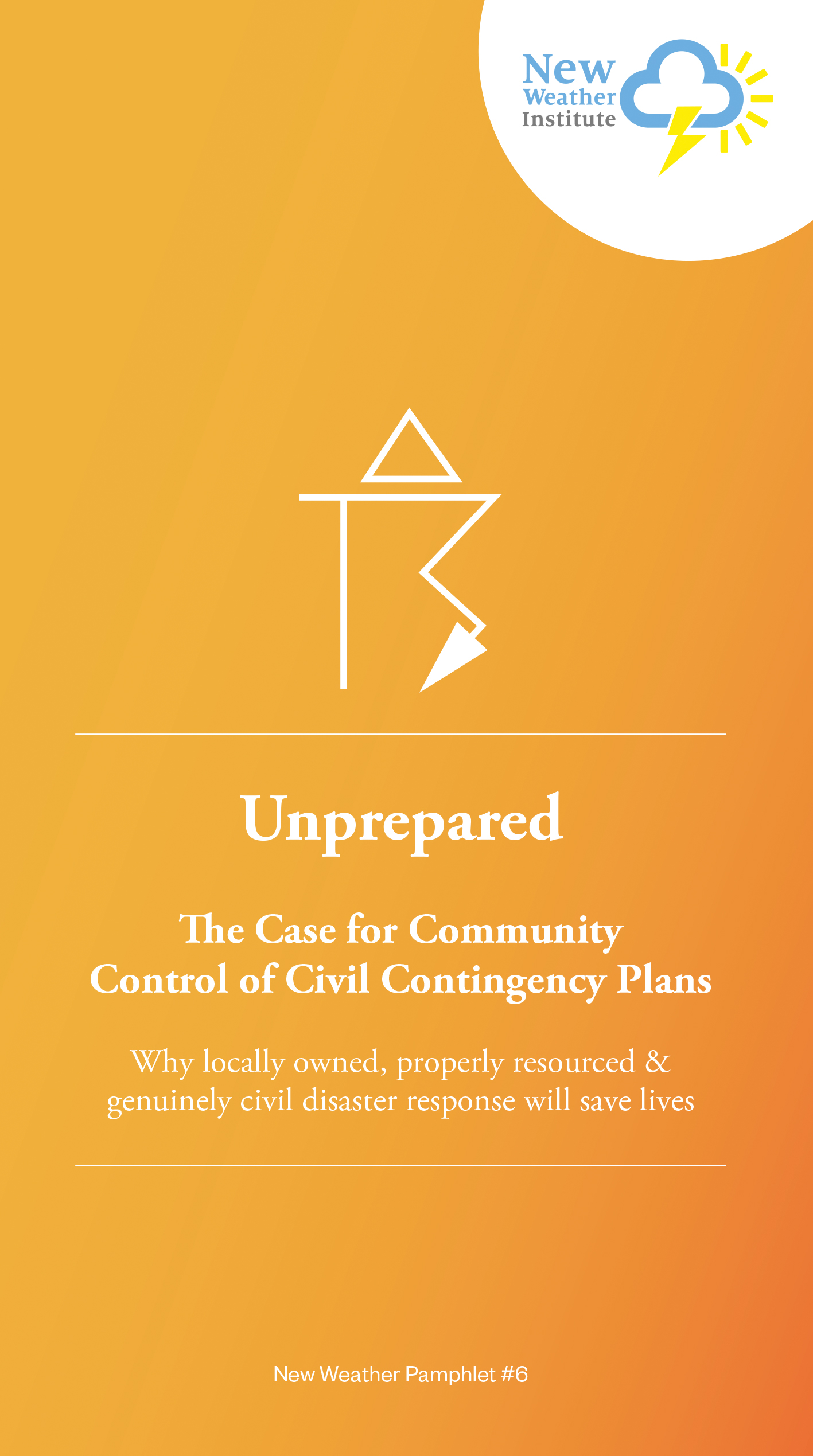
This pamphlet looks at how the UK is unprepared for a new era of crises and disasters. To illuminate the national predicament we look at lessons from recent history, and what we can learn, often from countries in the Global South, about the kind of local planning required and resources needed to be ready for when storms and other disasters strike near where we live.
We are pleased to work with…









